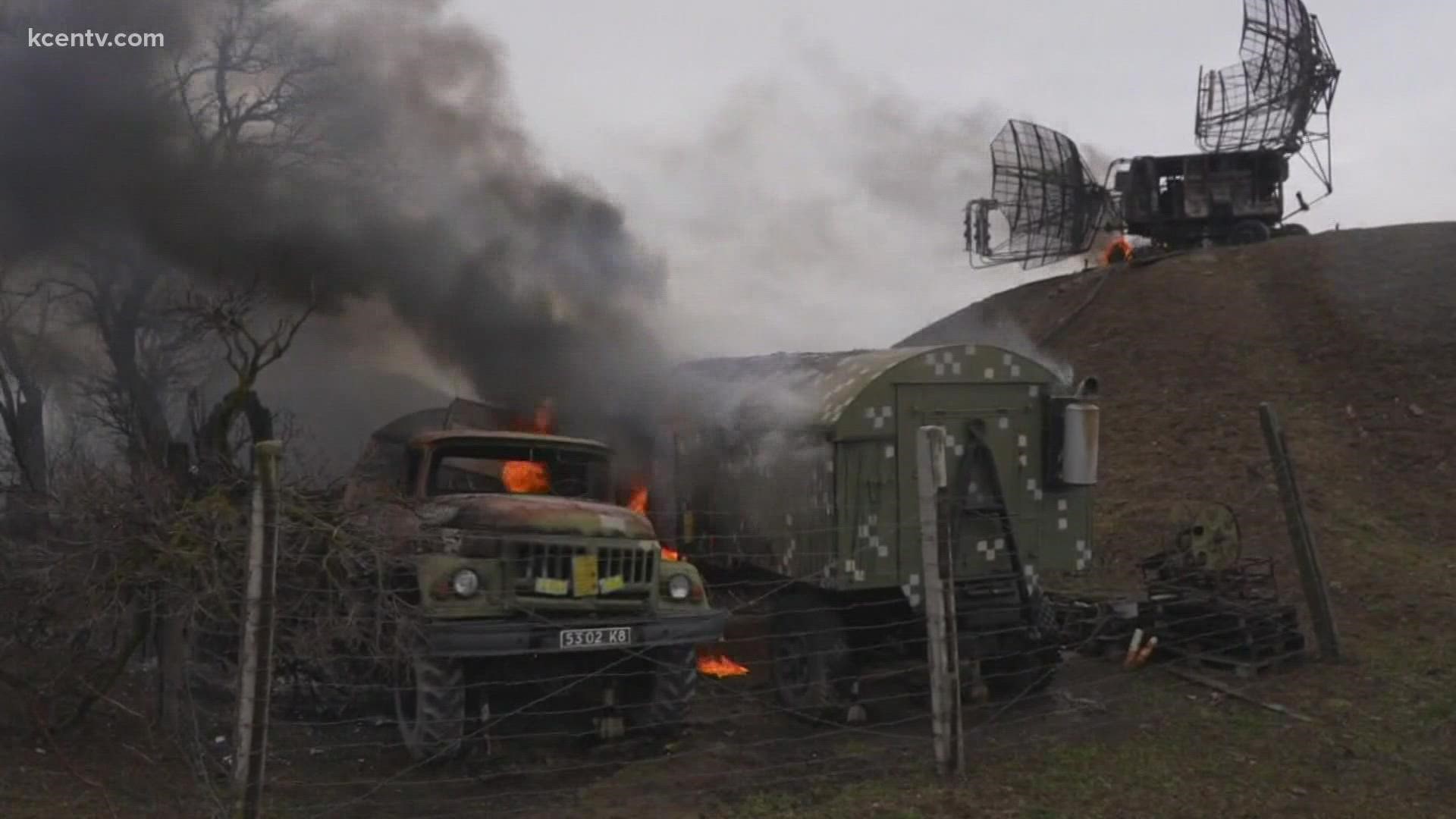TEXAS, USA — Every single day we're seeing more news of the destruction and devastation left by Russia's invasion in Ukraine.
As the crisis continues, doctors want to remind you to take care of your mental health as what's unfolding can be a lot to take in.
"I think first, remember what your job is, which is not to keep an eye on global politics and the nuclear arsenals of our country and other countries," said Dr. Kevin Gilliland, a Dallas-based clinical psychologist and executive director of Innovation 360.
The crisis is creating a lot of different emotions, feelings and issues for both people in the midst of it right now and those watching from afar.
For those who are not in the midst of it, he says it's okay to stay up to date but try not to get upset by what you can't control. Gilliland says the uncertain future for those in Ukraine and also the rest of the world adds to the stress.
"Obviously, there are things none of us know for very good reasons and just don't get too far ahead and that's what anxiety and fear wants us to do," he explained. "Don't let your worry yank you that far into the future because I promise you nobody can answer those questions so, don't wreck today."
Easier said than done after the last two stressful years we've had with the pandemic and a recession.
Gilliland says we are all worn out by the uncertainty -- uncertainty about an illness, about our jobs, about when all of it will come to a close. He says the human minds don't do well with that.
"That kind of daily chronic stress wears us down, which is really difficult for us now to look at this situation because emotionally we're a little more raw," Gilliland said. "We're not as patient and we're not far from sort of being overwhelmed. You really have to step into something like this and go okay - I don't have a lot of bandwidth so I need to be real careful how much I step into this."
He says we should limit how much media we're taking in, realize how our mind is reacting to the information and also surround ourselves with support.
"We all have a different level of comfort with that and a different level of it disrupting our psychological health," he explained. "We unfortunately have to carry the lion's share of responsibility for our own psychological health, especially at times like this when we can be overwhelmed with information."
This is just expert advice from Gilliland, you should seek medical help or advice from your own doctor or health care provider if you are experiencing any depression, anxiety or PTSD.

